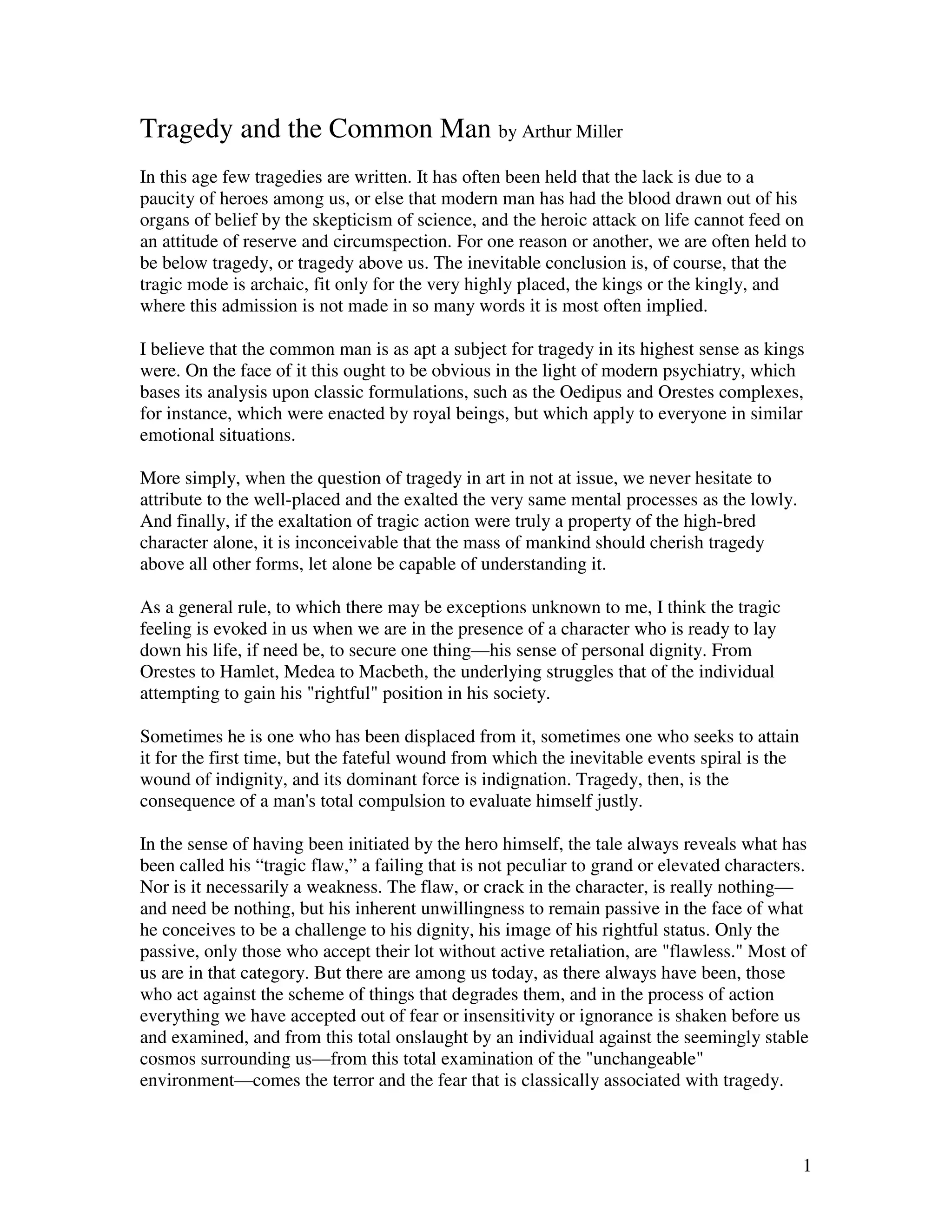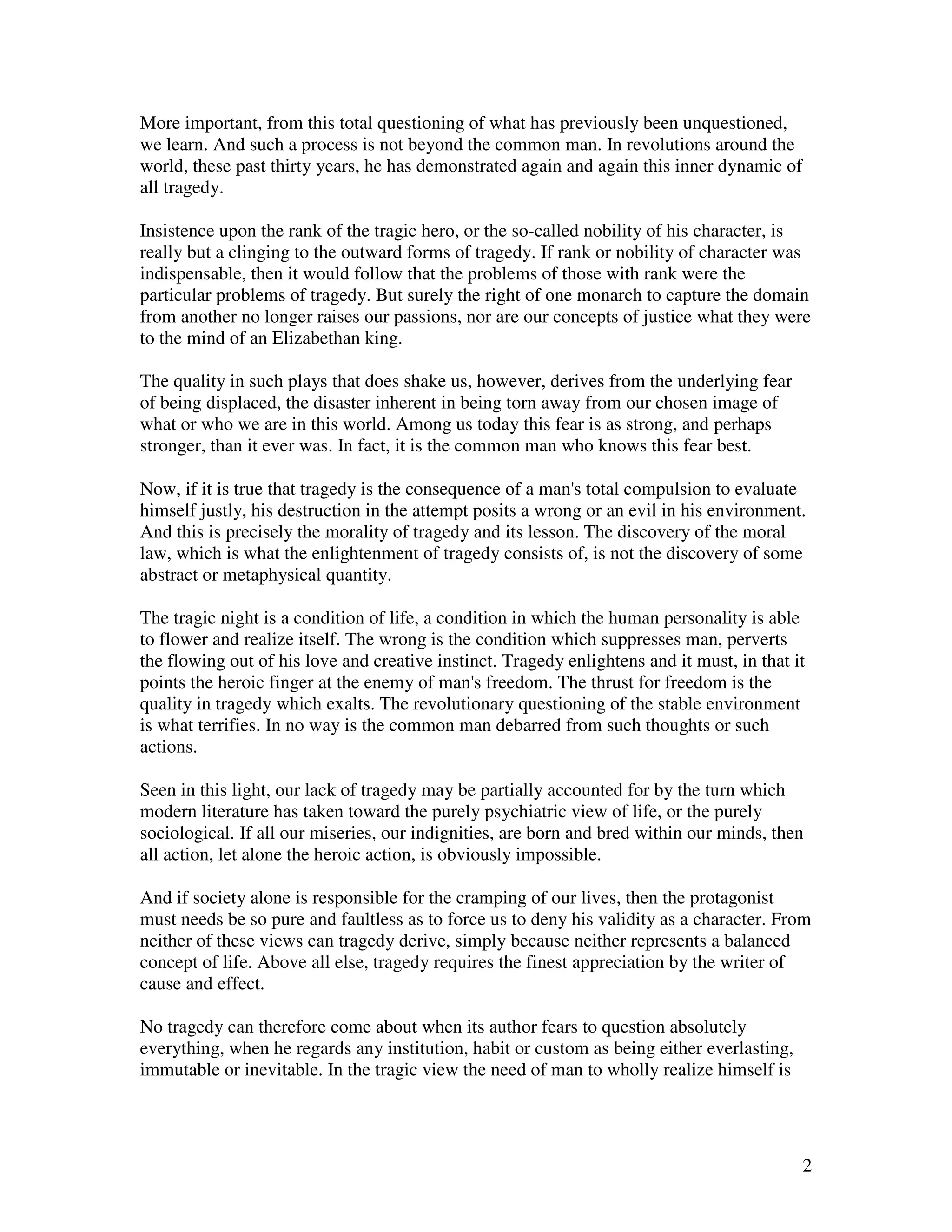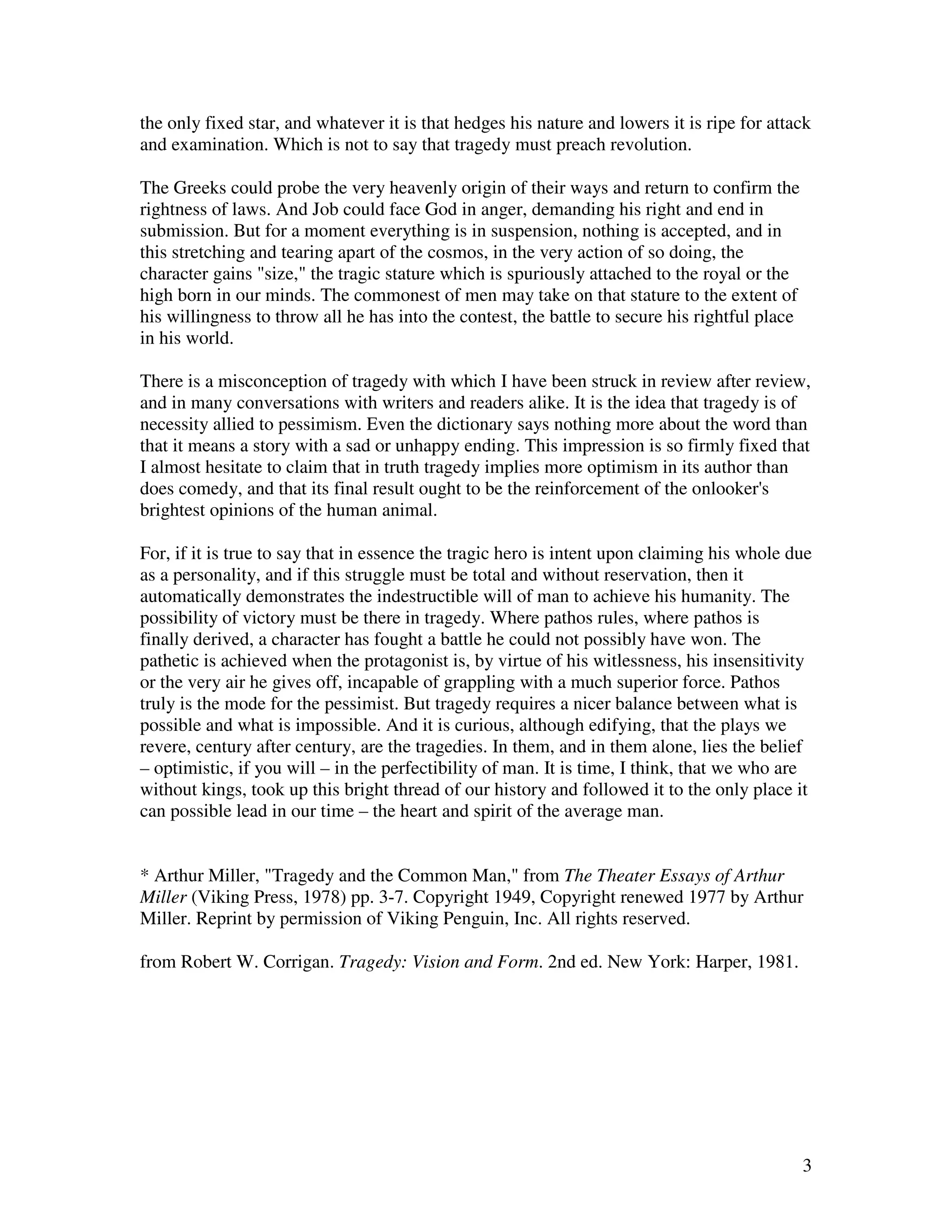Arthur Miller argues that tragedy is not limited to kings and the highly placed, but rather that the common man is equally suited to be the subject of tragedy. He asserts that tragedies often depict the universal human struggles of trying to gain or maintain one's dignity and place in society. While past tragedies focused on royalty, the emotions and mental processes they portrayed apply to all people. Therefore, tragedy should reflect the struggles of average people to assert their humanity and rights in the face of societal forces that oppress them.


